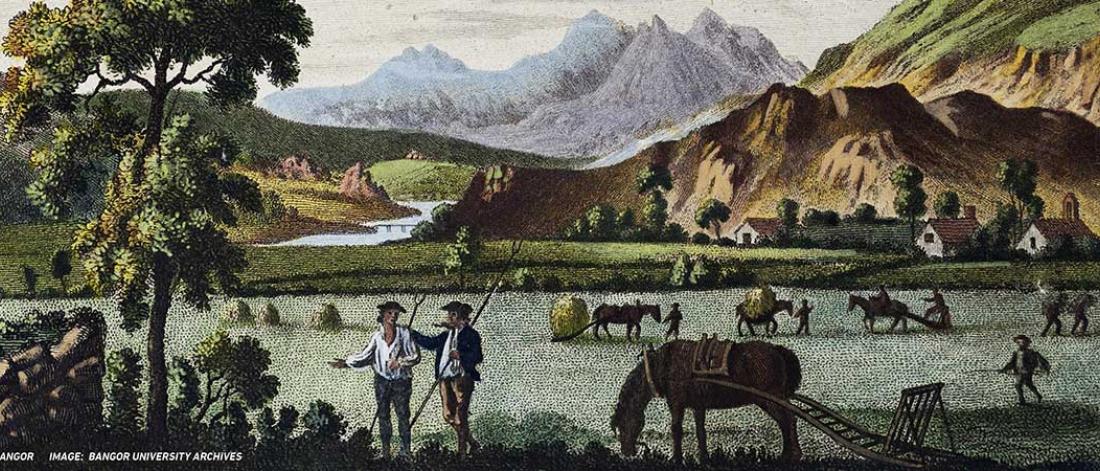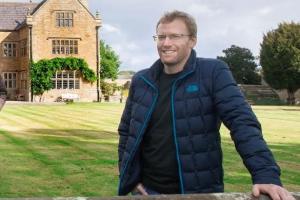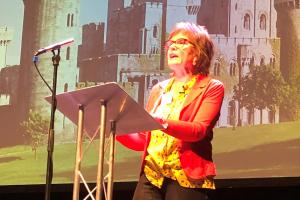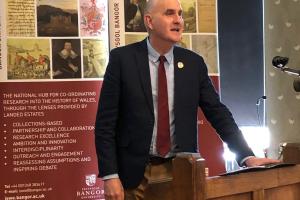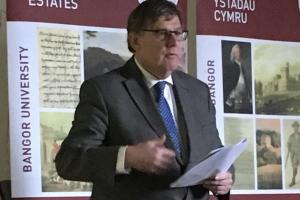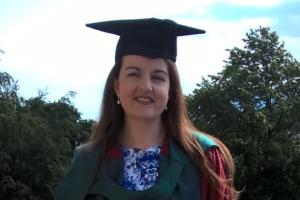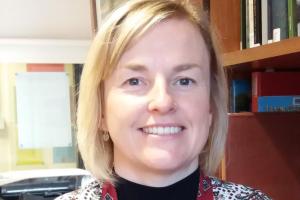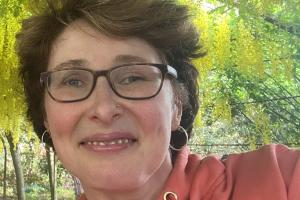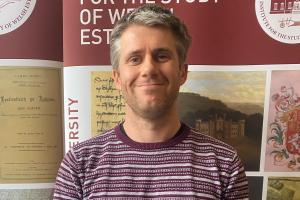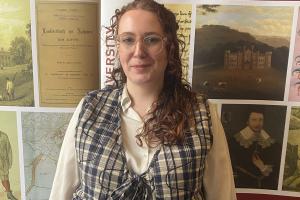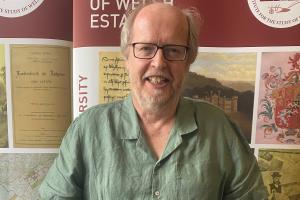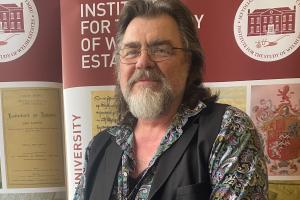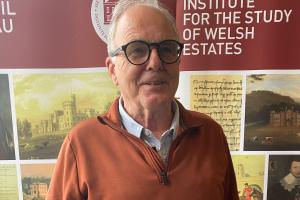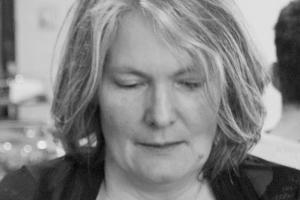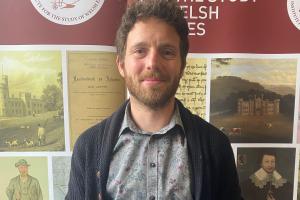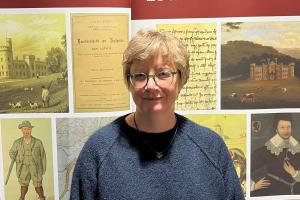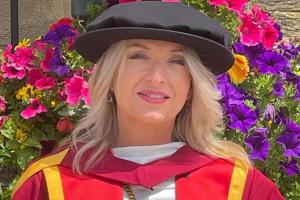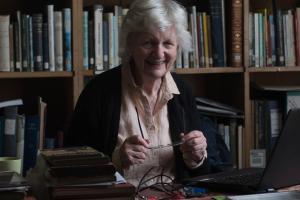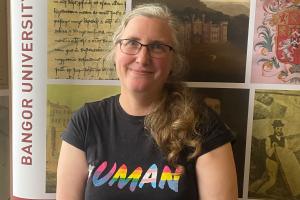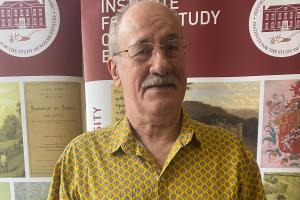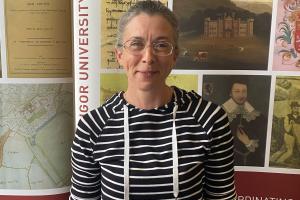Bangor University Colleagues
ISWE’s ‘home’ at Bangor University is within the School of History, Law and Social Sciences. The Director is also supported by a team of colleagues based in different Schools right across the University. These colleagues contribute expertise from fields as diverse as archives and woodland management, legal history and music, sustainable land use, Welsh literature and book history. They provide important interdisciplinary perspectives on our work, represent ISWE within their subject areas and supervise our doctoral projects.
Research and Engagement Associates
In 2024 ISWE appointed two Research and Engagement Associates, Sean Martin and Bethan Scorey, both doctoral researchers at Bangor University. Sean and Bethan work closely with the Director and wider ISWE team to promote our programme of work, activities and achievements to wider constituencies and communities both within and beyond Bangor University.
Doctoral Researchers
Our doctoral researchers are an essential part of our mission to more clearly understand the histories, cultures and landscapes of Wales. We have succeeded in attracting a cohort of bright, committed and enthusiastic researchers to Bangor University who are undertaking important studies linked to our research interests. You can read more about their doctoral projects on the Our Research section of our website.
Advisory Board
The Advisory Board is an external body consisting of experts and community members who share a concern for the development of ISWE into a vigorous intellectual entity capable of making a positive difference to Welsh society and culture. The Board comprises a group of individuals whose expertise and skills align with our interests – including historical and contemporary understandings of estates and country houses, archives, rural affairs and the cultural heritage of Wales.
The role of the Board is to provide a sounding board for our long-term development and to offer insights and advice on matters relating to our public profile, stakeholder relations, intellectual identity and funding strategies. The Board meets about twice a year, with members acting as ambassadors for the centre in their spheres of influence.
The Advisory Board is chaired by Prof Robin Grove-White, the owner of the Brynddu estate on Anglesey. Robin spent his career at the intersection of research and policy, including as Director of the Council for the Protection of Rural England, Chairman of Greenpeace UK and Co-Director of the interdisciplinary Centre for the Study of Environmental Change at Lancaster University, where he became Professor of Environment and Society. In 2012 he received a PhD from Bangor University for a thesis on the early modern history of the Plas Coch estate in Anglesey. In 2018 he was awarded an Honorary Fellowship by Bangor University for services to the community. He is President of the Anglesey Antiquarian Society.
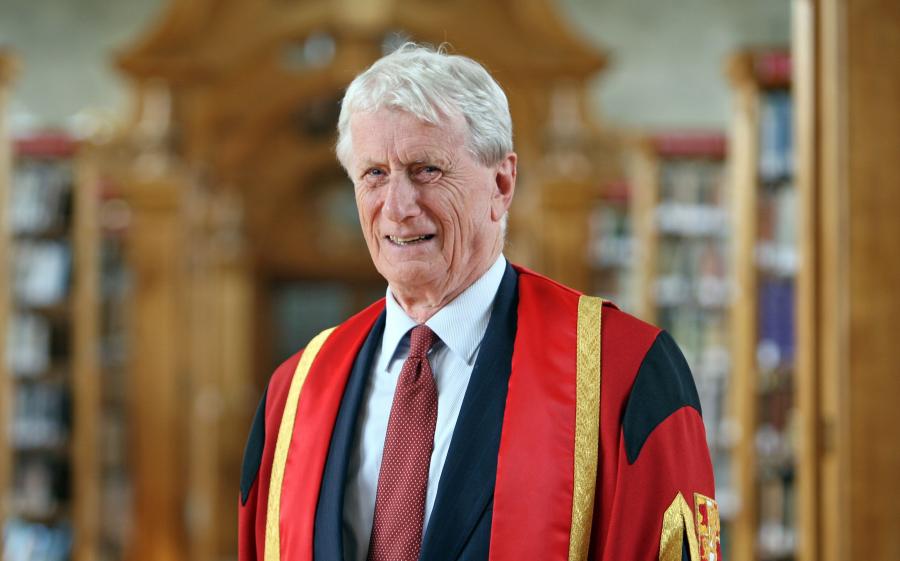
Terry specialises in Irish social and political history of the nineteenth and twentieth centuries, particularly the history of Irish country houses and the landed class. In 2001 he produced a ground-breaking monograph on The decline of the big house in Ireland, which directly led to the establishment of the Centre for the Study of Historic Irish Houses and Estates (CSHIHE) at Maynooth University under Terry’s directorship. This research centre, working across public and private spheres, and in collaboration with academia, archives and cultural heritage, has transformed both academic and public understanding of and engagement with the history of country houses and estates in Ireland. The achievements of CSHIHE are recognised internationally and in many respects they provide the model and inspiration for ISWE’s development. They are one of our key academic partners and Terry’s position on the Board serves to strengthen collaborative ties between the centres in Ireland and Wales.
An Honorary Fellow of Bangor University, Raj has made major contribution to Bangor University, the local community and to wildlife and conservation projects since her move to Anglesey in 1997. A physicist by training, Raj has long-term interests and publications in the history of science and technology. She helped to establish the History of Physics Group at the Institute of Physics, served as a trustee of the Manchester Museum of Science and Industry and was Secretary of the Manchester Literary & Philosophical Society. Since 1997 she has devoted her time and efforts to her great passion in life: conservation, in particular of the native red squirrel in Anglesey. She sponsored the Bangor History Festival in 2019.
David was born in Hong Kong and is the grandson of a sheep-farmer from Carmarthenshire. He read Jurisprudence at Jesus College, Oxford, and enjoyed a distinguished career as a lawyer with Norton Rose, holding the position of Chairman and Senior Partner between 1997 and 2003. In 2006 he was elected to the office of Sheriff of the City of London and in 2007 became the City’s 680th Lord Mayor. In 2009 he received his knighthood in recognition of his services to the legal profession and to the City of London. Over recent years, having moved back to Carmarthenshire, David has dedicated significant time to researching and producing a series of volumes on the history of landed families, estates and their associated communities in south west Wales. He holds two Honorary DCLs (City and Wales) and is an Honorary Fellow of Jesus College Oxford, Cardiff, Guildhall School, and University of Wales Trinity Saint David. On 1 March 2008 he was awarded a St David’s honour by the First Minister.
Tom is from the Tywi valley in Carmarthenshire. After reading Classics and Law at Cambridge he practiced as a solicitor in London before returning to Wales to devote his career to historic buildings and Welsh heritage. In 1986 he published The Lost Houses of Wales, which led to his appointment to the Historic Buildings Council for Wales, of which he was subsequently Chair for ten years. He has also served as Director of the Wales Tourist Board, promoting heritage as a component of Welsh tourism, as Chair of the Buildings at Risk Trust and as a Commissioner of RCAHMW. Since 2011 he has served as Wales Herald of Arms Extraordinary and has recently been appointed President of Carmarthenshire Historical Society.
George is Chairman of the Meyrick Group whose principal assets include the Meyrick family’s ancestral Bodorgan estate on Anglesey. The Bodorgan Estate comprises a diverse portfolio of residential, commercial, leisure, heritage, environmental and agricultural assets. His particular interests are in the inter-section of property and environmental markets and environmental governance. In 2017 George was appointed as the Chancellor of Bangor University, succeeding Lord Dafydd Elis-Thomas as the 12th individual to hold the role. George is a qualified but currently non-practising barrister.
As Head of the School of History, Law and Social Sciences throughout ISWE’s existence, Peter has played an important role in overseeing our development into an academic entity fully integrated into the research, impact and learning functions of the School and University.
Born and brought up in Cardiganshire and Carmarthenshire, Michael qualified as a land agent at the Royal Agricultural College, Cirencester, before working in private practice and later for the Crown Estate as Asset Manager and Conservation Adviser. His passion for Welsh architectural heritage inspired him to rescue and conserve the derelict buildings of Trevor Hall (Llangollen), Hendre House (Llanrwst) and, working with others, Plas Kynaston (Ruabon). He has published works on Welsh houses at risk and his current project is the conservation of a sixteenth-century hall house on the Powys/Shropshire border. He has previously chaired the Welsh Historic Gardens Trust and Historic Houses Association in Wales, as well as serving as a Trustee of the Georgian Group and member of the Historic Buildings Council for Wales.
Einion was head of Bangor University Archives between 2002–2015 where he had responsibility for the preservation and promotion of the Archives, including the unique collections of estate papers. Prior to joining the University he was head of the Archives Service in Anglesey and later on in his native county of Merioneth. Prior to his retirement he co-founded the Institute for the Study of Welsh Estates as a centre to unlock the research potential of the University’s estate collections. Einion has research interests focusing on the history of rural Wales, including the history of poaching.
Helen worked as a television producer and director, overseeing programmes with a focus on Welsh subjects and issues, before undertaking a doctoral project at Bangor University on the life and image of the early modern Welsh gentlewomen Catrin of Berain. This research combined Helen’s interests in Welsh visual and literary cultures. Helen also runs a self-catering holiday cottage business on the Glasfryn estate in Caernarfonshire.
Past Board Members:
An alumna of Bangor and Aberystwyth universities, and of Jesus College, Oxford, Rhian Davies is a music historian who has been Artistic Director of the Gregynog Festival since 2006. Inspired by the rich cultural legacy of Gregynog in Rhian’s home county of Montgomery, the Festival is now firmly established as one of the premier cultural events in the UK. Rhian is a leading advocate of Wales’ musical heritage and throughout her career has worked to promote Welsh culture internationally, whilst also showcasing global talent in Wales. Rhian was awarded an Honorary Fellowship by Bangor University in 2019 for services to Music.
Dafydd was MP for Merioneth from 1974-1992 and Senedd Member for Dwyfor Meirionnydd from 1999-2021, serving as Presiding Officer of the Welsh Assembly from its inception to 2011. Dafydd was Chancellor of Bangor University from 2000-2017. He stepped down from ISWE’s Advisory Board on being appointed Welsh Government Minister for Culture, Tourism and Sport in 2017.
In her role as Executive Director of Development at Bangor University, Sheila has played an integral role in our establishment and growth as a research centre. ISWE’s initial phase of development has been supported by philanthropic funding. The Development Office supports ISWE in matters relating to private funding strategy, external relations, marketing and the operation of the Advisory Board.
Honorary Research Fellows
At the time of the Institute’s establishment five eminent academics and archivists were invited to join ISWE as Honorary Research Fellows, to advise on our research plans and intellectual development. The late Prof A. D. Carr was one of Wales’ leading medieval historians whose pioneering research into the development of landed estates and the uchelwyr in north Wales provides an important foundation for our work. The late Dr John Davies made wide-ranging contributions to the study and promotion of Welsh History, including important works on landownership and a major publication on Cardiff and the Marquesses of Bute. Prof David W. Howell’s studies of Welsh rural and agricultural history in the eighteenth and nineteenth centuries continue to provide an essential framework for research. During his career working at the National Library of Wales, J. Glyn Parry became recognised as one of Wales’ leading archivists, with especial expertise in the records of the Court of Great Sessions. Prof Prys Morgan has made significant contributions to the cultural and intellectual life of Wales, especially in the sphere of eighteenth-century cultural history.
Associate Members
We recognise that many individuals and organisations external to Bangor University share an interest in progressing our intellectual and cultural aims and aspirations. Partnership and collaboration with these colleagues and stakeholders is fundamental to our mission. We therefore offer an Associate membership status as a form of affiliation for individuals and organisations who actively support and contribute towards our objectives. Associate membership is offered as a means of enhancing our academic reach and collaborative capacity through engagement with a network of external partners in other research organisations and in the cultural heritage, archives, historic house and rural affairs sectors. Our Associate members will play an important role in helping us to embed the all-Wales reach of the Institute; and assist in demonstrating the far-reaching relevance of our work, including in international terms. Please contact us to enquire about membership.
Friends of ISWE
We are always delighted to learn that our work is of interest to people within and beyond Wales. Since our establishment we have benefitted from the support, engagement and encouragement of many individuals and organisations. We are grateful that many of the people who support and follow our work have joined our Friends scheme. Our Friends are an important part of ISWE. If you would like to join them, please visit the Support our Work section of our website.

